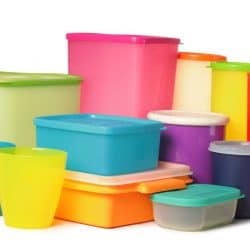Tupperware is a common household item that many people use daily. However, Tupperware can be challenging to clean if oil or grease gets trapped inside the container. Let's look at how to clean Tupperware so that it's sparkling clean and ready to use again.
In order to clean oily or greasy Tupperware, follow these steps:
- Mix 1 tablespoon of vinegar with water.
- Pour the mixture into the Tupperware.
- Let it sit for 1-2 hours.
- Fill the sink with warm, soapy water.
- Place the Tupperware in the sink so it can soak for a few minutes.
- Use a scrub brush or sponge to remove any remaining oil or grease.
- Rinse the Tupperware with clean water and dry with a towel.
Depending on how bad the grease or oil is, you may need to alter these steps. In this article, we will provide some tips on how to remove grease from Tupperware. In addition, we will answer other frequently asked questions about Tupperware, so read on!
![Glass and plastic Tupperware containers, How To Clean Tupperware Oil Containers [6 Helpful Cleaning Solutions]](https://kitchenseer.com/wp-content/uploads/2022/06/How-To-Clean-Tupperware-Oil-Containers-6-Helpful-Cleaning-Solutions-667x1000.png)
How to Clean Oily Tupperware
It's common to see tupperware in almost every kitchen. And it is easy to use and store away.
It's so popular that many don't know that Tupperware is a brand, not a type of container. That would be like calling another brand of tissue Kleenex.
Tupperware is made of different types of plastic. The most common type is polyethylene terephthalate (PET). This plastic is used for water bottles and food containers. It's a lightweight, durable plastic that is shatter-resistant.
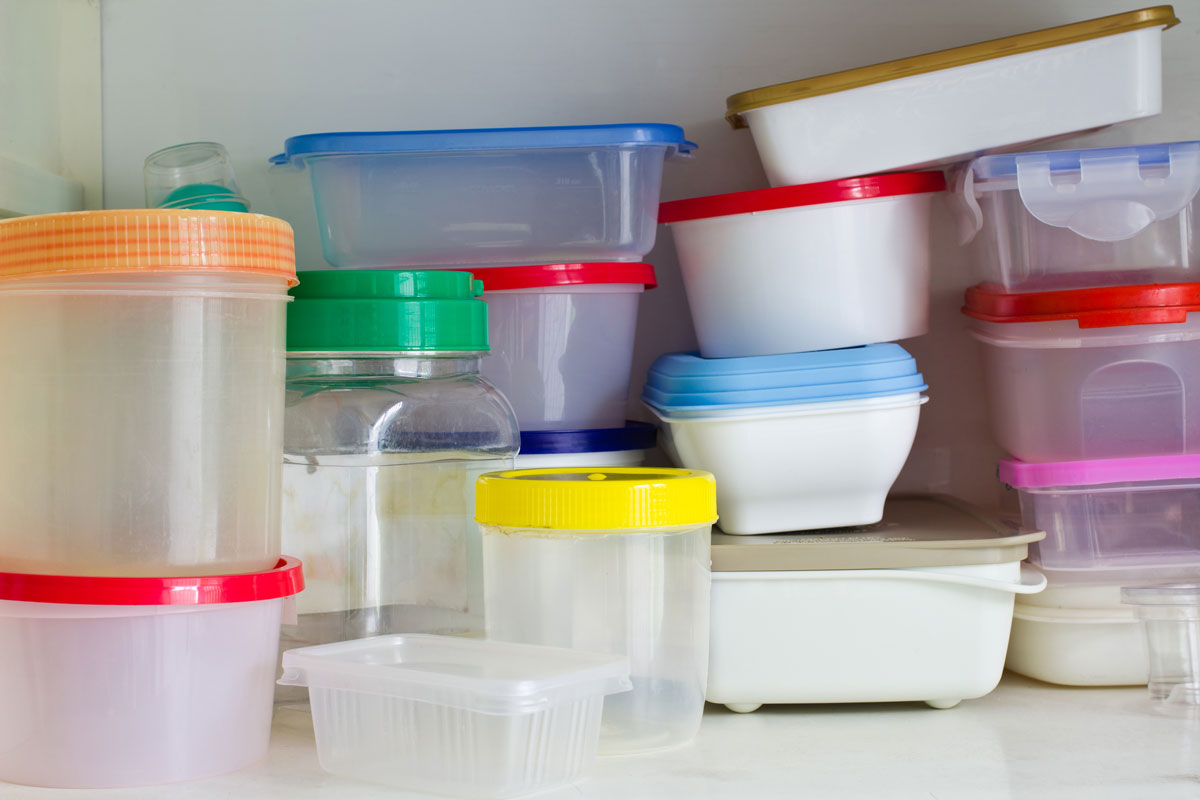
However, that doesn't mean oil cannot stain or ruin your Tupperware. Instead, oil can seep through the pores of plastic and cause it to become discolored, smelly, and sticky.
So, how do you get rid of the oil and grease from your Tupperware? We've got a few tips.
Vinegar and Water Mixture
One way to clean oil from Tupperware is to mix 1 tablespoon of vinegar with water. Then, pour the mixture into the Tupperware and let it sit for 1-2 hours. Depending on how long the oil has been on the Tupperware, you may need to let it sit longer.
Vinegar does wonders for cleaning. It's a natural disinfectant and can remove oil and grease from surfaces.
Soapy Water
The next step is to rinse the Tupperware with warm, soapy water. It's also a good idea to let the Tupperware soak in the water for a few minutes. This will help to loosen any remaining oil or grease.
Scrub the Tupperware
After the Tupperware has soaked, use a sponge or scrub brush to remove any remaining oil or grease. Rinse the Tupperware using clean water. Then, dry it with a clean towel.
If following these steps doesn't work, you may need to repeat them a few times.
What Are Other Ways to Clean Tupperware?
Leftover bowls are great for soup, pasta, and about any dish! Check out this Tupperware bowl set here.
Besides the vinegar and water mixture, there are a few other ways you can clean Tupperware.
Lemon Juice
Lemon juice is another natural disinfectant that you can use to clean Tupperware. The acidity in lemon juice will help to break down the oil and grease.
To use lemon juice as a cleaner, combine half a cup of lemon juice and half a cup of water. Next, you'll want to pour the mixture into the Tupperware and allow it to sit.
Baking Soda
Use baking soda because it is a natural cleaning agent. You can use baking soda to clean a variety of surfaces, and it's effective at removing oil and grease.
To use baking soda, combine half a cup of baking soda and 1/4 cup of water. Pour the diluted baking soda into the Tupperware and let it sit for 10-15 minutes. Rinse the Tupperware with clean water and dry with a clean towel.
Bleach
Bleach is a strong cleaning agent, so use it as a last resort. The bleach can damage plastic, so only use it on Tupperware that is white.
Mix 1 tablespoon of bleach with 1 cup of water to use bleach. Pour the mixture into the Tupperware and let it sit.
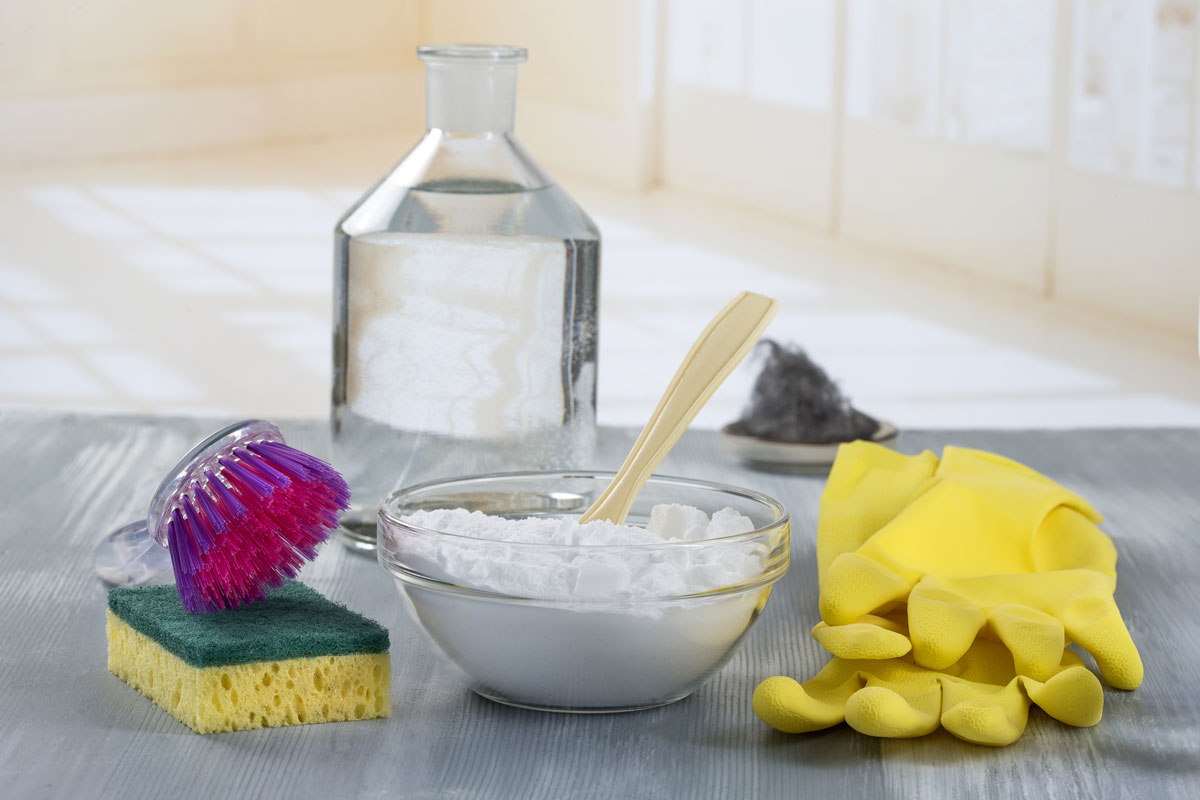
With any of these methods, the sitting time will vary depending on how bad the grease or oil is. Therefore, you may need to let the Tupperware soak for a longer time.
When using any of these methods, it's important to rinse the Tupperware with clean water and dry it with a clean towel.
Can Tupperware Be Put in the Dishwasher?
It is always good to check if your Tupperware is dishwasher safe. However, if you want your Tupperware to last longer, it is best to hand wash it. This is because the high temperatures in a dishwasher can cause the plastic to warp and become misshapen.
It may seem like a pain, but washing them by hand will save you money in the long run.
When Should You Throw Out Tupperware?
Tupperware doesn't last forever. Over time, it can become stained, cracked, and brittle. So, if your Tupperware is showing signs of wear and tear, it's time to replace it.
It's also a good idea to get rid of Tupperware that was used to store toxic substances. These substances can leach into the plastic and contaminate your food.
Don't leave food and liquids sitting in your Tupperware for too long. The longer it sits, the more likely bacteria will grow.
If you take good care of your Tupperware, it can last for years. But, if you see cracks or creases, it's time to get rid of it.
Can You Microwave Tupperware?
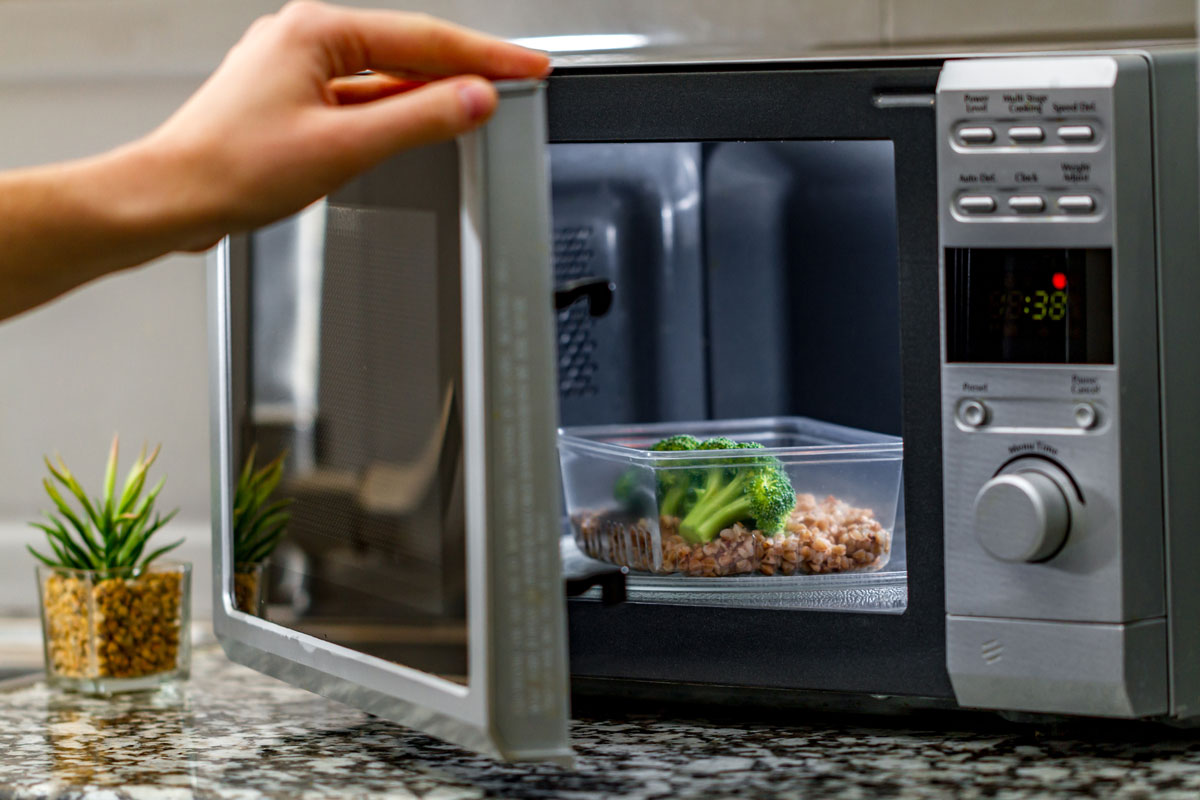
Most Tupperware is microwave safe. However, it's always best to check the label before microwaving. Some plastics can release toxins when heated.
If you're not sure if your Tupperware is microwave safe, err on the side of caution and don't put it in the microwave.
Some may think microwaving the Tupperware will help the cleaning process, but it's not a good idea. The high temperatures can damage the plastic and make it more likely to leach toxins into your food.
Can Oil in Tupperware Cause Mold?
If there is oil in your Tupperware, it's best to clean it before storing anything else in it. Oil can go bad and cause mold to grow.
If you see mold growing on your Tupperware, throw it out. Mold can be harmful to your health.
Even if you can't see mold, cleaning your Tupperware after each use is a good idea. This will help prevent the growth of mold and bacteria.
Can You Use Tupperware as an Oil Waste Container?
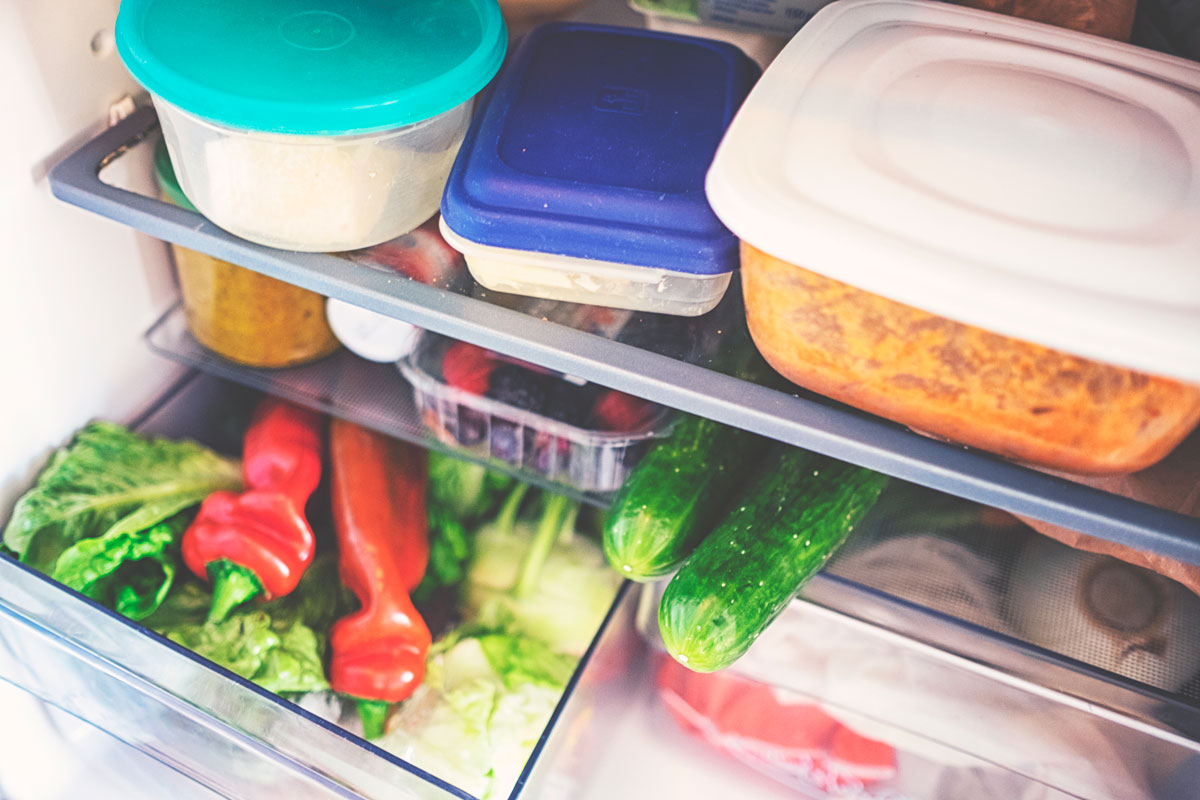
No, you should not use Tupperware as an oil waste container. The problem with plastic is that it can soak up the oil and eventually leak it out.
This is probably something you don't want in your food. If you must use Tupperware as an oil waste container, clean it thoroughly before using it for anything else.
You can also use glass or metal containers. However, these materials won't absorb the oil like plastic will.
Always make sure the oil is completely cool before pouring it into any container.
If you pour hot oil into a container, it can melt the plastic or cause the glass to shatter.
What Should You Not Put in Tupperware?
There are a few things you should avoid storing in Tupperware.
- Don't store food that is still hot. Hot food can cause the plastic to warp and release toxins.
- Don't store sharp objects in Tupperware. The sharp edges can puncture the plastic and cause leaks.
- Don't store corrosive chemicals in Tupperware. These chemicals can eat away at the plastic and leach into your food.
- Avoid storing foods with strong odors in Tupperware. The plastic can absorb these odors and transfer them to other foods.
Tupperware is great for storing leftover foods, but since it's made of plastic, there are some things you should avoid putting in it.
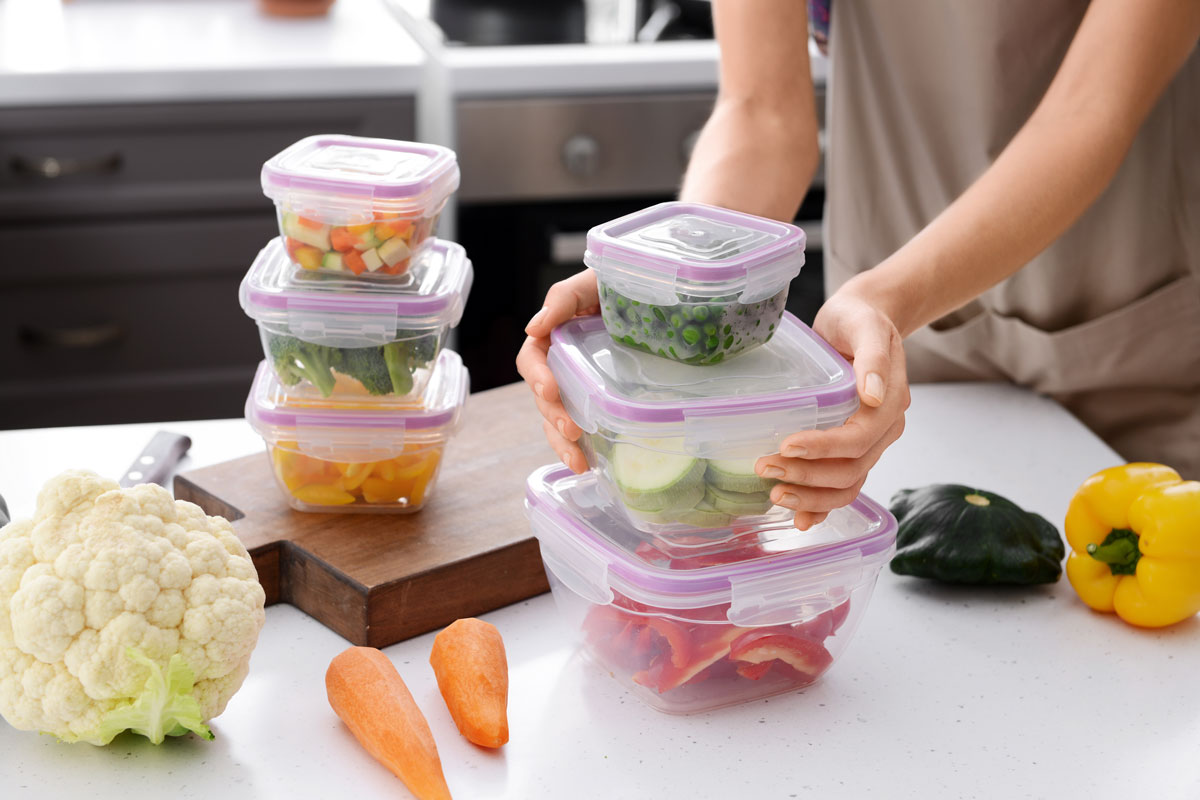
If you follow these guidelines, your Tupperware will last longer and keep your food safe.
How Long Should Food Sit in Tupperware?
If you want to store your food longer, you need dependable containers. Check out this Tupperware set on Amazon.
Depending on the type of food and how it was stored, food can last anywhere from a few days to a few weeks in Tupperware.
Most foods are good in Tupperware for 4-5 days. However, it will completely depend on the type of food. Either way, be sure to refrigerate your food within 2 hours after cooking.
If you're not sure how long a particular food will last, it's best to err on the side of caution and eat it sooner rather than later.
Keep in mind that the longer sauces and oily foods sit in Tupperware, the more prone it is for mold to grow, and it will be harder to clean.
Final Thoughts
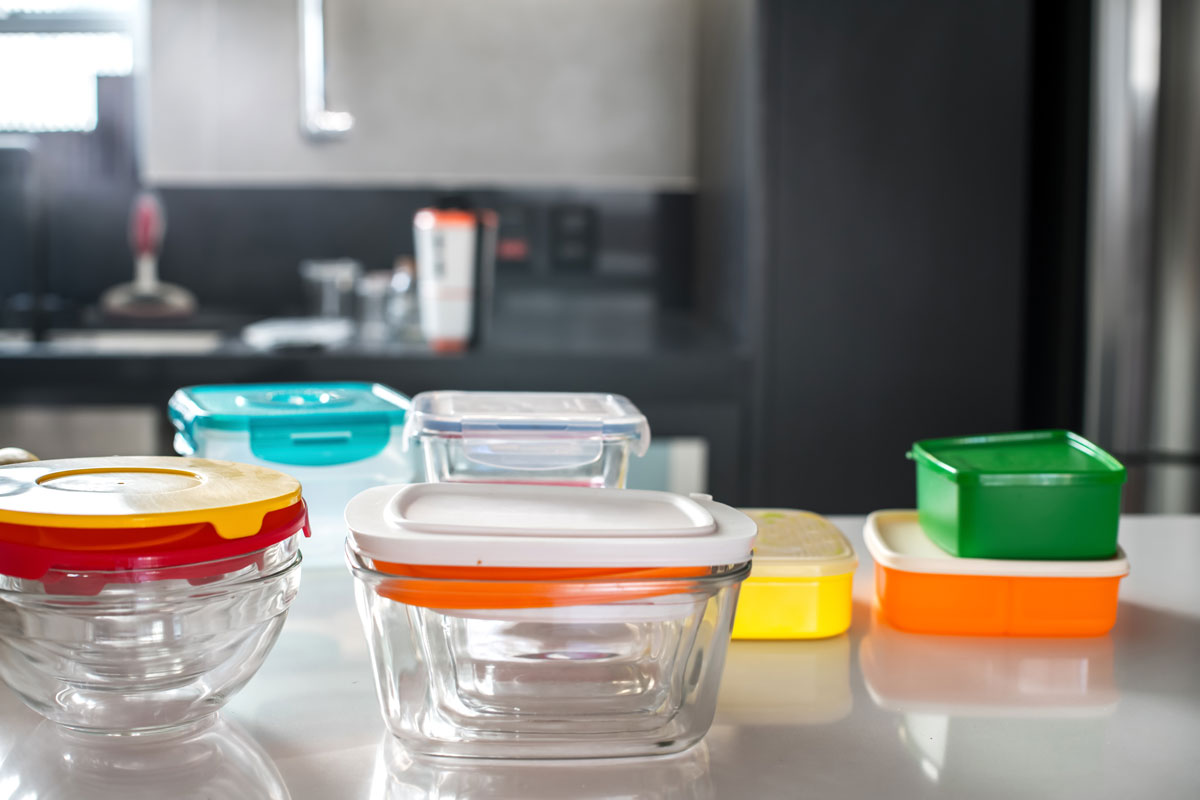
Cleaning oil from your Tupperware shouldn't be too difficult. All you need is some hot water, dish soap, and a little elbow grease.
If your Tupperware has been in the fridge for a while, it's good to clean it thoroughly before using it again. This will help prevent the growth of mold and bacteria.
Made it to the end? Here are other articles that you might find helpful:
How To Get Stains Out Of Tupperware [3 Easy Methods]
Should You Store Tupperware With Lids On?
What Is The Best Container For Freezing Soup?

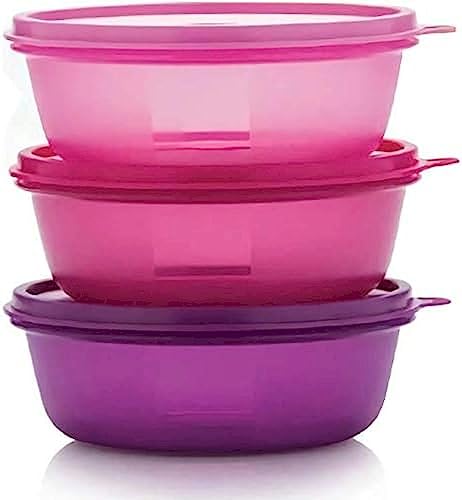

![A set of tupperware products on a dark background, How To Get Stains Out Of Tupperware [3 easy methods]](https://kitchenseer.com/wp-content/uploads/2020/09/A-set-of-tupperware-products-on-a-dark-background-250x250.jpg)
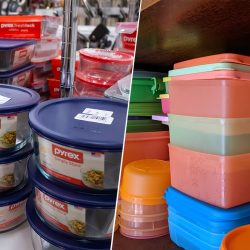
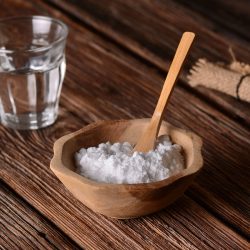
![Close-up of baking soda in a glass jar. Bicarbonate of soda - Is Baking Soda Edible? [Raw And Baked In Recipes]](https://kitchenseer.com/wp-content/uploads/2022/11/Close-up-of-baking-soda-in-a-glass-jar.-Bicarbonate-of-soda..-250x250.jpg)
